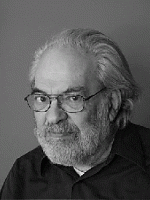 Learning, real education, is a product of the love of wisdom, a desire that cannot be satisfied with anything less than whatever will satisfy. We long for wisdom, but wisdom is hard to find!
Learning, real education, is a product of the love of wisdom, a desire that cannot be satisfied with anything less than whatever will satisfy. We long for wisdom, but wisdom is hard to find!
Does wisdom exist?
Love is of something a young man conceded to Socrates in the Symposium (199D). We do not just love, we love something. Sometimes that something is different than we believe, but some sufficient cause must have produced this love of wisdom. While this is not surely true, it is the simplest explanation that fits the facts of our daily life. Love is (generally) of something. Our imperfect, but real, love of wisdom is nothing like the lesser loves of life.*
We never harm or are harmed by our tentative desire for wisdom.
If we keep loving, then we outgrow the lesser objects of love, we do not so much moderate our desire, as find the right place for it. We come to love That which all good, beautiful, or true objects, even people, have in common. What is That?
Socrates knew that we could not possibly know with our reason. Many hearing this wish to hasten to some answer, but we should not be hasty. The total otherness of the Beloved is obvious, we know (!) that we cannot know the Beloved. We are always receptive to being mistaken, because of the magnitude of the Other.
This tension between knowing (there is a Beloved) and not knowing (we are open to having gotten him wrong) is human education. Why? One condition of learning is not to know. We cannot learn if we already are sure in our rightness! Yet this is difficult, because our love of the Beloved draws us ever closer.
We love the Beloved and so know the Beloved exists, but we know nothing (in ourselves) about Him. The danger of rigid ideology, where learning is impossible, is averted, because no lover is arrogant in his knowledge of the beloved. How much more intellectual humility is produced when the deepest longing of our minds is shown to be the Known Unknown, the Beloved Unknown? The opposite danger in education is a relativism that no longer cares about truth. If we cannot be sure, this foolish person thinks, then he does not wish to pursue knowing. The one in love with reason, wisdom, and knowledge cannot be in that position. We wish to know the Beloved! What else could we do?
If someone were to tell us, those of us who try to love wisdom, that we cannot be sure of what we claim about the Beloved, we rejoice! Ideally, especially if we suspect the Beloved is a person, then we are tentative. Nobody should love a person with arrogant certainty that he has the beloved figured out.
No lover is ever certain in his knowledge and is always willing to be corrected by the beloved! So Plato thought and what Plato thought about love, the Beloved, and education formed great schools in both the East and West of the world.
Professor Geier’s last word on the subject:
Morever, since the primary condition of each and every learning, as we have seen, is the need to become and to remain always ”in touch” with the Beloved Unknown, and since also it can be assumed that Socrates has learned how to learn, it seems that Socrates himself never loses sight of, or always remains “in touch” with the Beloved Unknown, because he is always perfectly receptive to the suspicion of being mistaken. This is what precisely defines the character and nature of Socrates and imparts to him perfect intelligibility. But this in itself is and remains a great mystery.
————————
*A lesser love has a good place. To say a love is lesser is not to say it is bad.
Professor Al Geier, may he Rest In Peace, left his students with a love of the text, especially Plato’s dialogs, and a deep desire to understand these great works.












